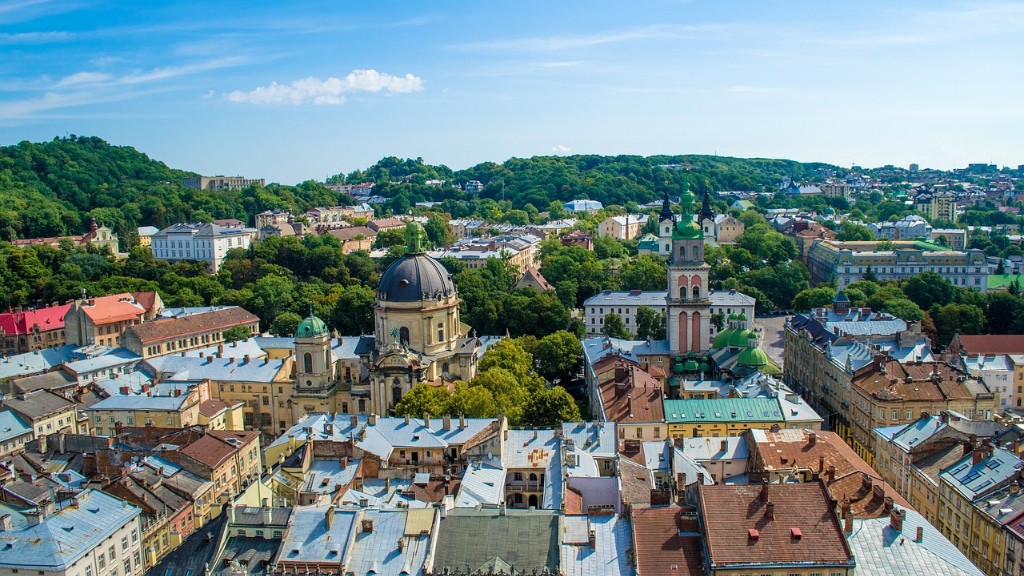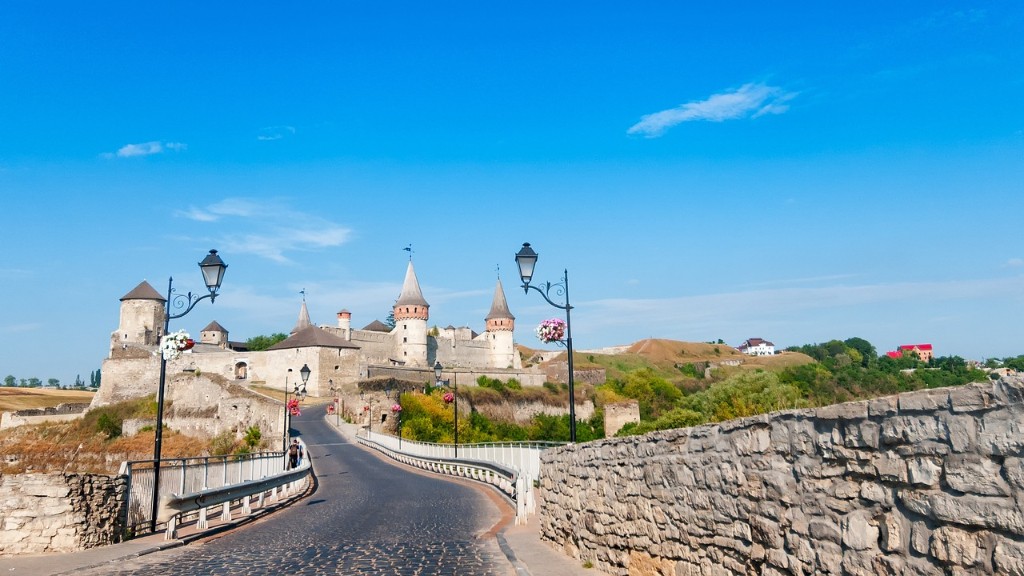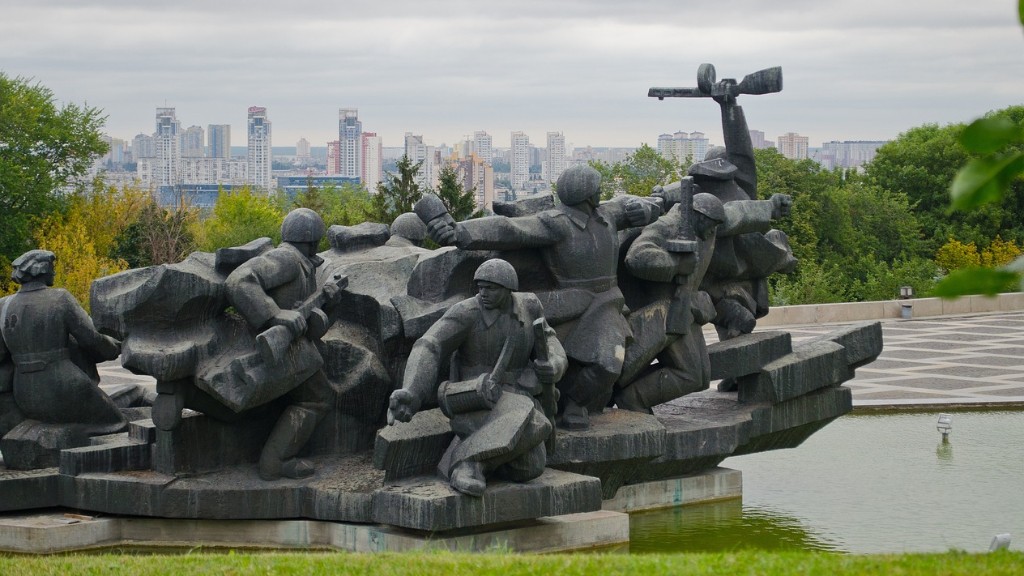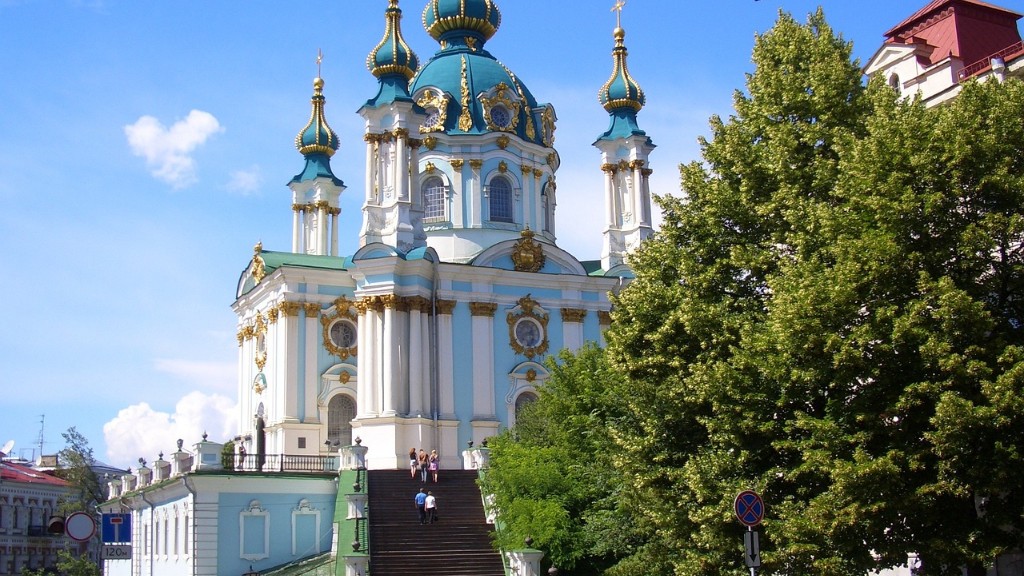Ukraine is a sovereign nation located between Central and Eastern Europe. It is the second largest country in Europe both in terms of population and land area. It’s bordered by Russia to the north, Belarus to the north-east, Hungary to the west, Romania and Moldova to the south-west, and the Black Sea to the south.
Ukraine is steeped in history. In the 9th century, the Rus-Ukraine people who settled in the areas of Kyiv and environs had established a powerful central authority that would later become the grand principality of Kyivan Rus. This was the first unified Eastern Slavic state in the whole of Eastern Europe. Later, Ukraine was a part of the Soviet Union, from 1917 to 1991, described as a satellite state. It gained independence when the Soviet Union dissolved.
Ukraine has an estimated population of 44.5 million and is the second most populated nation in Europe. It is a developing country with an industrial base growing from a long legacy of heavy industry during the Soviet era. Throughout Ukraine’s turbulent history, the region has managed to maintain its traditional Eastern Slavic culture, and has become a destination for both tourists and immigrants seeking to explore its diverse culture.
Today, Ukraine is a parliamentary-presidential republic, where the president is elected every 5 years and is the head of state. The Prime Minister is appointed by the president and is the nation’s head of government. The Ukrainian government strives to be a major international player, desiring to join the European Union and NATO. It is also a member of the United Nations.
The Ukrainian economy is currently transforming from a centrally planned to a market-based economy. While the economy was in decline after the Soviet Union dissolved, the country now has seen an increase in the manufacturing and agricultural sectors, and has been able to maintain control over the financial markets since the early 21st century. Ukraine is also making strong efforts to increase its foreign investment in order to decrease its dependence on Russia and to boost its economy.
Along with this, the country faces major challenges such as financial corruption andhas a high population of unemployed people. Political and economic unrest have plagued Ukraine since its independence, leading to a revolution in 2014. This revolution, which came to be known as the Euromaidan, was sparked by Kyiv’s decision to break ties with the European Union in favor of closer ties with Russia.
The Impact of the Euromaidan Revolution
The Euromaidan Revolution marks a significant chapter in Ukrainian history. The collapse of the government of former President Viktor Yanukovych, and the formation of a new coalition government that held parliamentary and presidential elections in 2014, brought about wide-reaching changes in the country. These included the strengthening of Ukraine’s relations with the European Union, greater respect for human rights and a desire for greater autonomy from Russia.
The newly formed government also shifted the focus of Ukraine’s foreign policy away from its former reliance upon Russian economic assistance and towards forging closer ties with the West. This shift in policy led to an improvement in relations between the government of Ukraine and the European Union, culminating in the signing of an Association Agreement which has opened doors to a better trading relationship with the EU.
The Euromaidan Revolution has also helped to re-energize the country’s civil society, leading to a strengthening of the independent media and the emergence of new civil society organizations. These organizations have contributed to the success of the Euromaidan Revolution by providing a platform for citizens to express their views and by advocating for greater respect for human rights in Ukraine.
The revolution also brought increased support for the Ukrainian military and security services, which are tasked with protecting the country from Russian aggression. In particular, the Ukrainian Armed Forces have received increasingly modern military hardware and training from foreign countries as a result of the revolution, and their role in safeguarding Ukraine from Russia and other foreign or domestic threats is increasingly acknowledged.
The Ukrainian Language
The Ukrainian language is the official language of Ukraine, spoken by the majority of its population. The language is closely related to Russian, and has two distinct dialects: Kyivan and Galician. The form of Ukrainian used in the Kyiv capital is now considered to be the standard form of the language, and is what is most often used for official purposes in Ukraine.
The Ukrainian language is taught in all public schools across the country, and its use is increasing. In particular, the language is increasingly used in politics, with government documents, decrees, and official statements being written in Ukrainian. This indicates the improved status of the Ukrainian language in the country, and has been a major accomplishment brought about by the Euromaidan Revolution.
The growth of the Ukrainian language is also evident in the increasing number of citizens who are learning Ukrainian as a foreign language. This trend is largely driven by the growing interest in Ukrainian culture and history, which is increasingly seen as important for understanding Ukraine’s place in Europe. Demand for Ukrainian language skills has also grown, due to the increasing opportunities for trade and cooperation with the EU and other nations.
The Impact of Russian Influence
Russian influence in Ukraine had been strong for centuries prior to the Soviet Union, however it grew even more when Ukraine was a Soviet satellite state. After Ukraine gained independence in 1991, Russian influence continued to shape the nation’s politics, culture and economy. The Euromaidan Revolution has been an attempt to move away from this influence, but it has not been easy.
Since 2014, Russia’s ties to Ukraine have become increasingly strained, as the country pursues closer ties with the European Union. This has resulted in a series of trade embargos and sanctions from Russia, which have had a damaging impact on the Ukrainian economy. In addition, the ongoing conflict with separatist forces in the east of the country, which Russia has been accused of supporting, has also had an impact on Ukraine’s international standing.
Russia has also sought to maintain control over Ukrainian foreign policy, which has led to widespread anxiety in the country about the nation’s future and the fragility of its international position. This is evidenced by the growth of pro-Russian sentiment in some parts of the country, which has been fueled by the propaganda of the Russian state media.
The Impact of Foreign Aid
In recent years, Ukraine has seen an increase in foreign aid to help the nation recover from the effects of the Euromaidan Revolution and to support its economy. This aid has come from a number of sources, including the United States, the European Union, and other international bodies.
This aid has assisted the Ukrainian government in its efforts to reform the economy and to build up its own capabilities in areas such as law enforcement and defense. It has also helped to improve the standard of living for many Ukrainians, with the aid being used to improve infrastructure and to support the development of small businesses.
The aid has also enabled the government of Ukraine to improve its relations with its European Union neighbors, and to make progress in its long-term goal of integrating Ukraine into the EU community. This has included providing assistance to Ukrainian citizens who wish to relocate to the EU, as well as providing funding for projects aimed at improving Ukraine’s economic relations with the EU.
Conclusion
The Euromaidan Revolution has been an important milestone in the history of Ukraine. It has opened the door for the country to forge closer ties with the European Union, and to move away from Russian influence. It has also led to increased recognition for the Ukrainian language and culture, and has allowed for the growth and development of the country’s economy and infrastructure. The nation has also been bolstered by increased foreign aid and support, which have been essential for the country to rebuild after the revolution.





